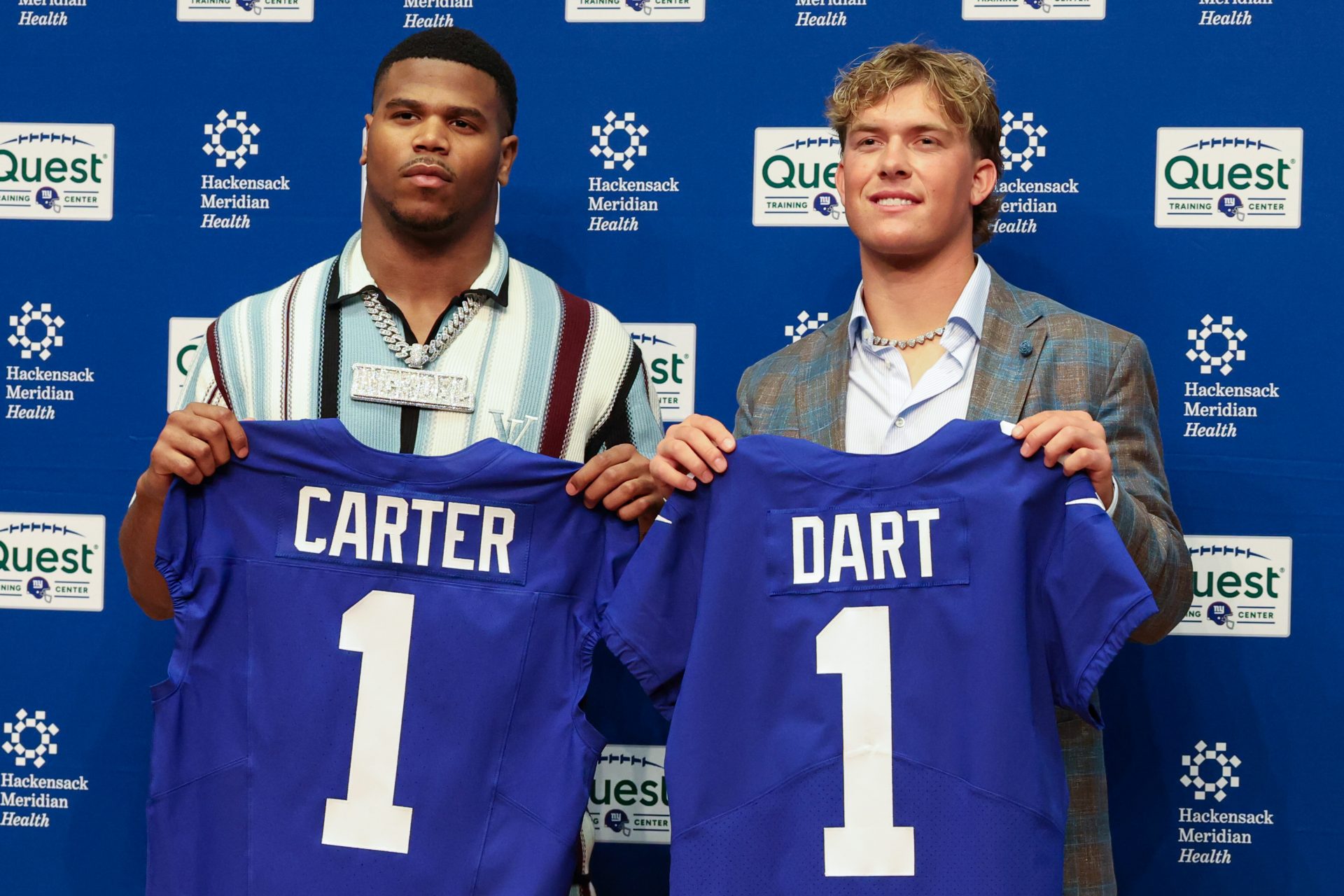Retired jersey numbers are causing a shortage of available digits for some NFL franchises. NFL analyst Ari Meirov believes the practice should largely stop as a whole.
Let’s take a deeper look into the history of retired numbers in the NFL and why a supposed-to-be tradition to honor team greats is actually making issues for organizations and rosters.

Football Analyst Ari Meirov Explains Why NFL Teams Shouldn’t Retire Jerseys
This offseason, New York Giants rookie Abdul Carter has been reported to want to sport a pair of retired jersey numbers for his new team. He had no such luck with Lawrence Taylor’s No. ’56’ or Phil Simms’ ‘No. 11.’ Carter’s type of issue isn’t limited to Big Blue.
NFL teams can roster up to 90 players in the offseason and 53 in the regular season, and 16 more on the practice squad during the latter. NFL analyst Ari Meirov gave his thoughts on the practice of retiring numbers on Tuesday.
Football is the one sport where retiring numbers doesn’t make sense given the large roster sizes and number limitations by position. Teams like the #Cowboys, #Raiders, and #Texans have it right—honor your legends in meaningful ways, but keep their numbers in circulation so the… pic.twitter.com/VJdOjFaIxO
— Ari Meirov (@MySportsUpdate) May 6, 2025
“It’s just, whenever it comes to numbers in the NFL, I just don’t think we should have numbers getting retired,” Meirov said.
“Honor the player, put him in the rafters, put his name there, do something special. I like what the Cowboys do, honestly, which is Jerry Jones gives out the No. 88 to whichever receiver he believes is gonna be the next big thing.”
Football isn’t like basketball or baseball, which have smaller rosters. A handful of NFL teams don’t retire numbers, unlike the New York Giants and Chicago Bears, who won’t hand out 14 of them — a league-high mark.
While the MLB, NBA, and NHL all have league-wide retired numbers — ’42’ for Jackie Robinson in baseball, ‘6’ for Bill Russell in basketball, and ’99’ for Wayne Gretzky in hockey — no number is retired for all 32 teams as a whole.
“You just look around, like, every single year, you need these numbers,” Meirov said. “I know… people go to training camp and they’re trying to see what players are on the roster, they get the roster sheet and then there’s, like, three players wearing the same number because we don’t have enough numbers to give out because other numbers are retired.
In the NFL, no player is allowed to share a number as someone else on the same team. While the rules are relaxed during the preseason when rosters haven’t been cut down to the limit yet, some players will wear the same number, but it is rare.
“I just think, in football, it’s a little bit difficult to retire numbers, unlike basketball, where it’s, you know, 12, 13 guys on a roster. Baseball, it’s 25 guys. Like, there’s enough numbers available to pick from where, like, ‘Okay, my number’s not available. I’ll find something else.’ Football, you can’t even do that.”
RELATED: Shedeur Sanders’ Agent Rages Over No. 2 Jersey Number Dispute, But QB Vows to Make No. 12 Legendary
Meirov believes there should be a few exceptions for talents who make a truly indelible impact with a team.
“If you’re gonna do it, it really should be for the special, special players,” Meirov said. “You look at some of the numbers that are retired (and) they’re from the 1930s and 1940s for players who, I know there are specific reasons, like they went to war and whatever, but some of these guys played, like, three years with their team.”
While seeming relatively meaningless to the onlooker, jersey numbers can bring a great source of pride — or even superstition — to players. It is a common practice, especially in the NFL, for incoming players to pay other players for their jersey numbers before the season begins.
College Sports Network has you covered with the latest news, analysis, insights, and trending stories in college football, men’s college basketball, women’s college basketball, and college baseball!

